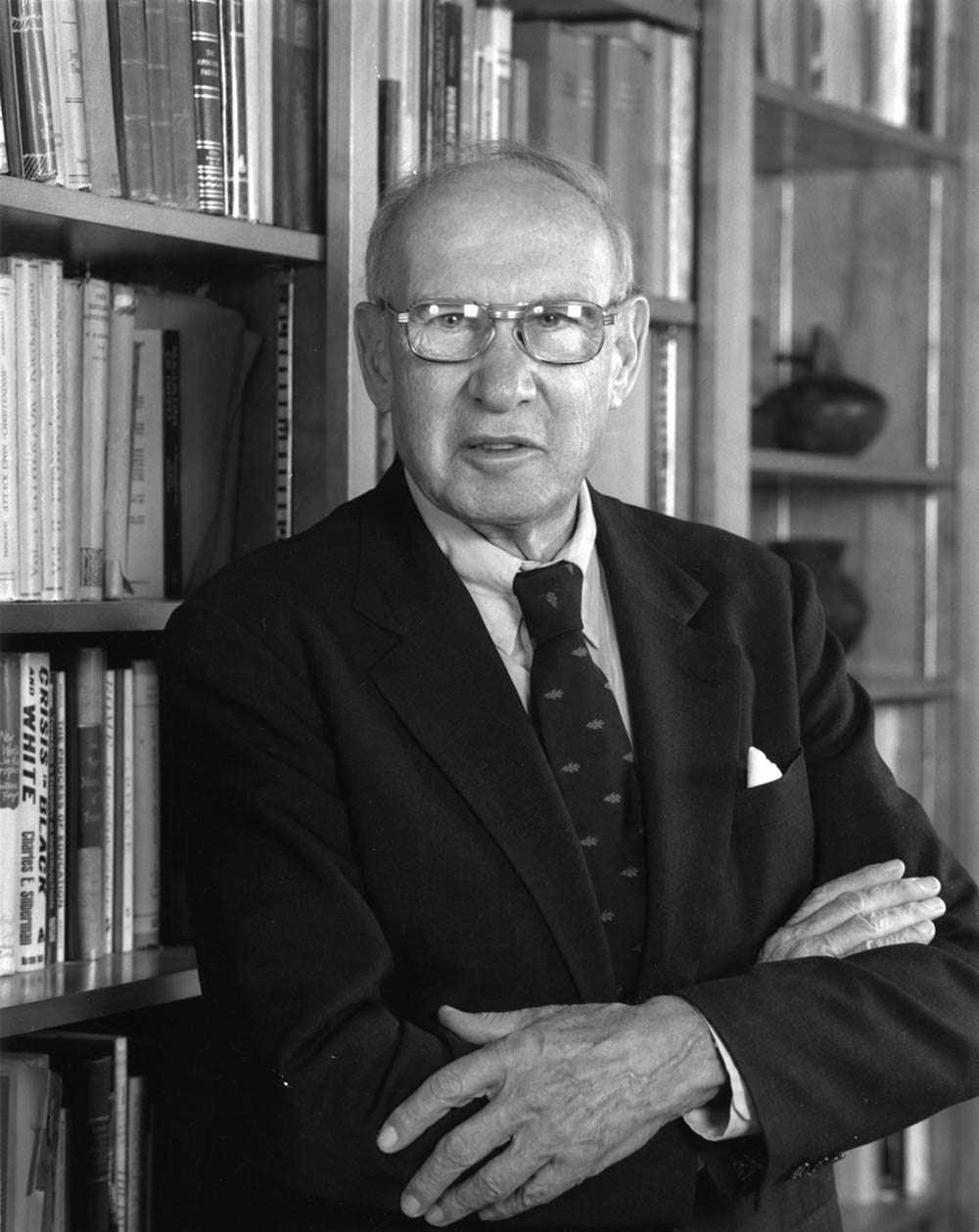M L A
Management is thus what tradition used to call a liberal art: “liberal” because it deals with the fundamentals of knowledge, self-knowledge, wisdom, and leadership; “art” because it is also concerned with practice and application. Managers draw on all the knowledge and insights of the humanities and social sciences – on psychology and philosophy, on economics and history, on ethics as well as on the physical sciences. But they have to focus this knowledge on effectiveness and results – on healing a sick patient, teaching a student, building a bridge, designing and selling a ‘user-friendly’ software program.
Peter F. Drucker
(Adapted from “The New Realities”, Ch.15)
We do not know yet precisely how to link the Liberal Arts and Management We do not know yet what impact this linkage will have on either party And marriages, even bad ones, always change both partners
Peter F. Drucker
(Adapted from “Teaching the Work of Management”, “New Management”, Fall 1988)
Management as a Liberal Art
Peter F. Drucker
“Management has to be a discipline, an organized body of knowledge that can be learned and, perhaps, even taught.”
There is a good deal of talk these days of the “culture” of a company. But my book, The Practice of Management, published more than thirty years ago, ends with a chapter on the “spirit” of an organization, which says everything to be found in such current best-sellers as In Search of Excellence. From the beginning I wrote, taught, and advised that management has to be both outside-focused on its mission and on the results of the organization, and inside-focused on the structure, values, and relationships that enable the individual to achieve.
For this reason, I have held from the beginning that management has to be a discipline, an organized body of knowledge that can be learned and, perhaps, even taught. All of my major books, beginning with Concept of the Corporation (1946) and Practice of Management (1954) and progressing through my most recent one, Innovation and Entrepreneurship (1985), have tried to establish such a discipline. Management is not, and never will be, a science as that word is understood in the United States today. Management is no more a science than is medicine: both are practices. A practice feeds from a large body of true sciences. Just as medicine feeds off biology, chemistry, physics, and a host of other natural sciences, so management feeds off economics, psychology, mathematics, political theory, history, and philosophy. But, like medicine, management is also a discipline in its own right, with its own assumptions, its own aims, its own tools, and its own performance goals and measurements. And as a separate discipline in its own right management is what the Germans used to call a Geisteswissenschaft—though “moral science” is probably a better translation of that elusive term than the modern “social science.” Indeed, the old-fashioned term liberal art may be the best term of all.
(Adapted from “The Frontiers of Management”, 1986)
Let Prof. Joseph A. Maciariello explain to you what MLA is in this short video.
“Father of Modern Management”
Peter F. Drucker (1909.11.19 – 2005.11.11)
Peter F. Drucker, an Austrian-born writer, educator and consultant, is hailed as the “Father of Modern Management”.
“Management” is now regarded as a discipline, a practice and a profession, and this is largely due to the thinking and efforts of Drucker. For nearly half a century, he inspired and educated executives and leaders from both business and non-profit sectors worldwide. He was deeply concerned about individuals finding meaningful existence in a functioning society. He believed that responsible management should aim at enabling individuals fulfilling, organizations performing and the society functioning.
With a broad vision and sharp insights, he espoused “Management” as a truly Liberal Art. His teachings remain fresh as ever and will motivate and guide managers for generations to come.


Why does Drucker’s knowledge matter to us?
Peter F. Drucker, the Father of Modern Management, advocated Management as a Liberal Art, and a practice of Knowing-Acting Balancing. His timeless wisdom on Management, Leadership, Innovation and Entrepreneurship, has inspired many world leaders across generations. This is especially relevant in the era of networked world today. Through a dynamic social ecological approach, built on values, Drucker’s management concepts and principles inspire leaders creating vision and human energy, and doing the right thing. Understanding the world with Drucker, starting from
One can learn to be effective and discover a fulfilling life through practising Management as a Liberal Art.
About MLA Academy

MLA Academy, formerly known as Peter F. Drucker Academy, a member of MLA Foundation, is a registered Non-Profit Management Institute in Hong Kong.
The term “MLA” stands for “Management as a Liberal Art” which is coined by Peter F. Drucker. Drucker emphasises that “management is a human activity” and “management is a social function and liberal art”. He thinks that management should be concerned deeply with human well-being and the betterment of society.
Inherited from Drucker’s teaching, and mingled with eastern and western culture, the Academy will continue making contribution towards a functioning society in which people find meaning and purpose through practicing Drucker’s MLA.
Our Mission
Our Mission
To enable individual achieving, organization performing and society functioning through the learning and practice of Management as a Liberal Art as envisioned by Peter F. Drucker.
Our Values
Our Values
Compassion ‧ Integrity ‧ Truth
Our Services
Our Services
We focus on MLA (Management as a Liberal Art) advocacy, research and education. Through working with partners and institutions, we organize MLA seminars, conferences and offer courses for executives, entrepreneurs, young professionals and students. Rooted in Drucker’s teaching, our MLA courses deal with the fast-changing economic, social, political, and technological context, aiming at creating vision and impact for 21st century leadership.
